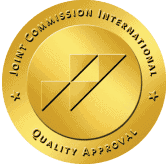Whether you’re recovering from substance use, dealing with mental health issues, or transitioning from inpatient care, understanding these treatment options is an important part of your recovery journey.
What Are Partial Hospitalization Programs (PHP)?
Partial hospitalization programs, or PHP, are a more intensive treatment program designed for people who need significant therapeutic support but don’t require 24/7 hospitalization. PHP offers a highly structured environment, typically five days a week, where patients attend full-day therapy sessions and return home at night.
PHP programs are ideal for individuals with moderate to severe symptoms of mental illness, including depression, anxiety, bipolar disorder, and co-occurring substance use issues. Patients benefit from a treatment team that includes doctors, therapists, and counselors who provide daily therapeutic interventions, medication management, and crisis stabilization when needed.
This level of care offers intensive support and frequent interaction with professionals, making it a strong fit for people needing direct supervision and a consistent supportive environment to achieve long-term recovery.
Unlike inpatient treatment, PHP allows you to return home in the evenings—so you can begin completing the action of recovery in real-world environments, with continued support. That blend of structure and flexibility helps individuals stay grounded as they learn to rebuild their daily life with healthy habits and coping strategies.
Most importantly, PHP at Assure Recovery is rooted in human connection—whether it’s through peer support, trusted therapeutic relationships, or guided reflection. We believe that a strong support network is essential to healing, and we help you build one that lasts beyond treatment.
What Is an Intensive Outpatient Program (IOP)?
An intensive outpatient program, or IOP, is a flexible yet structured treatment option that allows people to maintain their daily responsibilities while still receiving high-quality mental health treatment. IOP treatment typically involves 3 to 5 sessions per week, each lasting several hours, and includes group therapy, individual counseling, and evidence-based therapies.
IOP programs focus on helping individuals stabilize symptoms, build coping skills, and improve social functioning. It’s especially effective for those stepping down from PHP or inpatient care, or for those with mental health conditions that are manageable without full-day supervision.
While IOP treatment is less intensive than PHP, it still provides accountability, structure, and a safe and supportive environment. It allows participants to attend work or school, care for their families, and live at home while still making progress in their healing journey.

Key Differences Between IOP and PHP
Understanding the key differences between IOP and PHP programs helps individuals and families make informed decisions about the right path to healing.
Time Commitment is one of the major differences. PHP requires attending treatment most of the day, usually five days per week, which can feel like a full-time job. IOP, on the other hand, allows more flexibility with fewer hours per week, enabling participants to balance therapy with daily responsibilities.
Intensity of Care is another key factor. PHP is a higher level of care that often includes intensive support, crisis management, and access to a more comprehensive treatment team. It may serve as an alternative to inpatient care or a step-down from hospitalization. IOP treatment still provides structured care, but with less frequent sessions and a greater focus on practicing coping skills in real-world situations.
Program Focus varies as well. PHP typically concentrates on symptom stabilization and safety, while IOP emphasizes ongoing recovery, relapse prevention strategies, and integration into everyday life. Both involve structured therapy sessions, group therapy, and therapeutic interventions, but the goals and pace are different based on each client’s needs.
PHP and IOP Programs: Key Similarities
Both PHP and an IOP program offer more than just basic outpatient therapy—they provide structured treatment designed to help individuals develop coping skills, navigate emotional challenges, and build a foundation for long-term stability. These aren’t drop-in sessions; they’re focused, therapeutic spaces guided by licensed clinicians and mental health professionals.
Whether you’re enrolled in PHP or an IOP treatment track, group therapy plays a major role in recovery. Sharing space with others who understand your experience helps build emotional resilience and reaffirms the importance of human connection. Group sessions, combined with individual therapy, medication management, and psychoeducation, help each person heal with both professional and peer support.
Both levels of care adjust to your progress. Whether you’re just starting or completing the action phase of your recovery, PHP and IOP can evolve with your clinical needs, work schedule, and home life.

Which Program Is Right for You?
Choosing between IOP and PHP depends on several factors, including symptom severity, home environment, support system, and personal goals.
If you’re experiencing intense symptoms that interfere with daily functioning, PHP offers more intensive care and supervision. If you’re further along in your recovery or need a program that fits with work or school, IOP programs may be the better choice.
Both levels of care are rooted in evidence-based therapies, personalized treatment planning, and the belief that recovery is possible with the right support. Whether you’re seeking help for yourself or a loved one, Assure Recovery is here to guide you through the process.
Choosing PHP over IOP Treatment: Who It Helps Most
A Partial Hospitalization Program is often recommended for individuals who:
- Need more support than traditional outpatient therapy offers
- Are stabilizing from a recent hospitalization
- Are managing a dual diagnosis (mental health + substance use)
- Struggle to maintain function due to severe symptoms
- Need daily structure but can safely return home at night
At Assure Recovery, PHP supports each person in completing the healing process—one that values empathy, evidence-based care, and the power of connection.

How Assure Recovery Supports Your Journey
At Assure Recovery, we take time to understand each client’s story. We verify benefits, conduct clinical assessments, and help you proceed with confidence—knowing that you’re choosing a mental health treatment program that’s aligned with your goals.
From your first call to your final treatment sessions, we provide a safe and supportive environment, a highly qualified treatment team, and a community that’s committed to your success. Whether you’re beginning with PHP or stepping into IOP treatment, we believe in your ability to heal and grow. Your well-being is our priority. Let’s build your recovery together.
Contact Assure Recovery today to explore IOP vs PHP options, complete your assessment, and begin the next phase of your mental health journey.
Sources
McCarty, Dennis, et al. “Substance Abuse Intensive Outpatient Programs: Assessing the Evidence.” Psychiatric Services, vol. 65, no. 6, 2014, pp. 718–726. PubMed Central (PMC), https://pmc.ncbi.nlm.nih.gov/articles/PMC4152944/.
Alterman, Arthur I., et al. “A Comparison of the Predictive Validity of Four Sets of Patient Functioning Measures in the Prediction of Treatment Retention and Outcome in an Intensive Outpatient Program.” The American Journal on Addictions, vol. 19, no. 1, 2010, pp. 62–69. PubMed Central (PMC), https://pmc.ncbi.nlm.nih.gov/articles/PMC2848466/.


